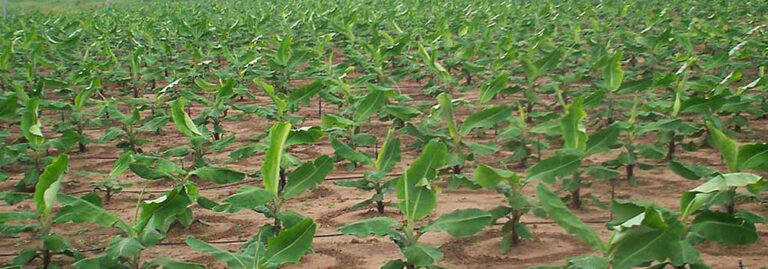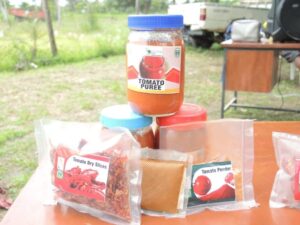The National Horticultural Research Institute (NIHORT), Ibadan, Oyo State, has reiterated that there are job opportunities for youths and women in multiplication of plantain planting materials and cultivation of mushrooms.
Disease-free plantain suckers are in short supply and the demand is on the high side, says the institute, prompting the Federal Government to emphasise the maximization of such opportunities by training 50 young Nigerians in a three-day course at the institute in Ibadan.
Executive Director of the institute, Dr Abayomi Olaniyan, said “plantain is a high value crop, unique, an important food security crop and source of income for smallholder farmers. It is a money-spinner for those that understand the value chain.”
He explained to the participants that it is very simple to cultivate and maintain compared with other cash crops that require so much time and money to maintain, saying, “It is a low capital agribusiness, comparatively lucrative and adaptable to almost every Nigerian soil.”
Plantain produces fruits all year round, making the crop more available and affordable as staple food crop.
Productivity of the commodity is affected by inadequate planting materials due to the slow rate of sucker multiplication.
Dependence on natural regeneration of plants for the supply of planting materials has been observed to be limited and encourages infection while spreading nematodes and weevils.
To close the gap, the institute has developed rapid multiplication techniques which present job opportunities for the youth.
Mushroom is one of the important food items and plays a significant role in human health, nutrition and is good source of protein, vitamins and minerals. Some mushrooms have medicinal benefits of certain polysaccharides, which are known to boost the immune system.
Also, mushroom production can improve the socio-economic conditions of farmers and families. It can be produced indoor in large quantity within a short period of time at great profitability.
“Mushroom cultivation can help reduce vulnerability to poverty and strengthen livelihood through the generation of a fast yielding and nutritious source of food and a reliable source of income.
“Mushroom cultivation provides opportunities for improving the sustainability of small farming systems through the recycling of organic matter, which can be used as a growing substrate, and then returned to the land as fertiliser.
“Successful cultivation and trade in mushrooms can strengthen livelihood assets. It is a veritable cash crop with potential promise to generate foreign exchange,” Olaniyan explained.
Major-General Mohammed Garba (rtd), who is the chairman, NIHORT Governing Board, said plantain/banana and mushroom are important economic and food security crops capable of improving livelihood and employment generation.
“I wish to request you to make good use of this golden opportunity and pay special attention to all sessions. I sincerely hope that knowledge acquired during the training shall be deployed to productive use for the country to be self-reliance in agricultural/horticultural value chain,” he advised the trainees.
Dr Joel Akindeke Akinfasoye, Head, HORTIConsult, NIHORT, said “We are training these people on two major crops. Mushroom production and plantain/ banana production. Now, there are so many stages involved, especially when you talk of plantain production from rapid multiplication of suckers to cultivation.”
He said there is no training is necessary to equip the participants with failure-proof techniques to ensure their success in the business.
“I am very sure that whatever they learn today would go a long way to help Nigeria in food production,” Akinfasoye said.
Originally published by: The Guardian




